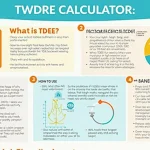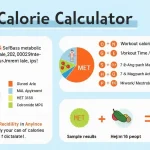Is this tool helpful?
How to use the tool
- Body Weight: type your mass—e.g., 65 kg or 180 lb.
- Weight Unit: pick “kg” or “lb”.
- Physical Activity Level: Sedentary, Light, Moderate, or Heavy.
- Fitness Goal: Weight Loss, Maintenance, or Muscle Gain.
- Age (Optional): add years to refine results (extra 0.1 g/kg if ≥ 65).
- Meals (Optional): enter daily meal count to split protein evenly.
- Press “Calculate Protein Intake” to view totals and per-meal grams.
Formula used
The calculator converts pounds to kilograms (kg = lb ÷ 2.20462) and then applies:
$$ \text{Protein (g/day)}=\text{Body Weight (kg)}\times\text{Multiplier (g/kg)} $$
- Base multiplier: Sedentary 0.8, Light 1.0, Moderate 1.2, Heavy 1.4.
- Add 0.2 for Weight Loss, +0.4 for Muscle Gain.
- Add 0.1 if age ≥ 65.
Example 1: Weight Loss
65 kg · Moderate (1.2) + goal (+0.2) = 1.4 g/kg.
$$65\times1.4=91.0\; \text{g/day}$$
Meals = 4 → $$ rac{91.0}{4}=22.8\; \text{g/meal}$$
Example 2: Muscle Gain
180 lb → 81.7 kg.
81.7 kg · Heavy (1.4) + goal (+0.4) = 1.8 g/kg.
$$81.7\times1.8=147.0\; \text{g/day}$$
Meals = 5 → $$ rac{147.0}{5}=29.4\; \text{g/meal}$$
Quick-Facts
- Adult RDA: 0.8 g/kg body weight (USDA Dietary Guidelines 2020).
- Upper safe limit: 2.0 g/kg for healthy adults (ISSN Position Stand 2017).
- Adults ≥ 65 y benefit from 1.2 g/kg to counter sarcopenia (Bauer et al., 2013).
- “Intakes up to 2.2 g/kg show no kidney harm in healthy adults” (Antonio et al., 2016).
- Average whey protein costs $0.04 per gram (Statista, Global Supplement Prices 2022).
FAQ
What formula does the calculator follow?
You multiply body weight in kilograms by 0.8-1.8 g/kg, then add 0.1 g/kg if you are 65 or older (WHO/FAO/UNU 2007).
Why adjust protein upward after 65 years?
Anabolic resistance reduces muscle synthesis after 65, so experts advise +0.1 g/kg to slow sarcopenia (Bauer et al., 2013).
How accurate is the body-weight method?
Weight-based equations predict needs within 10 % for most adults, matching lab nitrogen-balance data (Elango et al., 2019).
How should I time protein through the day?
Spread intake every 3-5 h; 0.4 g/kg per meal maximizes muscle protein synthesis (Moore et al., 2015).
Can plant proteins meet the targets?
Yes; combine legumes and grains to supply all essential amino acids (FAO Protein Quality Report 2013).
Is the tool suitable for kidney patients?
No. Chronic kidney disease requires medical-supervised intakes of 0.6-0.8 g/kg (KDIGO Clinical Practice Guideline 2020).
When should I recalculate my protein?
Re-enter data after any 5 % weight change or new training phase to keep estimates aligned (ACSM Nutrition Position 2022).
Does extra protein always equal more muscle?
Intakes beyond 2.0 g/kg show no additional hypertrophy in resistance athletes (Morton et al., 2018).
Important Disclaimer
The calculations, results, and content provided by our tools are not guaranteed to be accurate, complete, or reliable. Users are responsible for verifying and interpreting the results. Our content and tools may contain errors, biases, or inconsistencies. Do not enter personal data, sensitive information, or personally identifiable information in our web forms or tools. Such data entry violates our terms of service and may result in unauthorized disclosure to third parties. We reserve the right to save inputs and outputs from our tools for the purposes of error debugging, bias identification, and performance improvement. External companies providing AI models used in our tools may also save and process data in accordance with their own policies. By using our tools, you consent to this data collection and processing. We reserve the right to limit the usage of our tools based on current usability factors.







